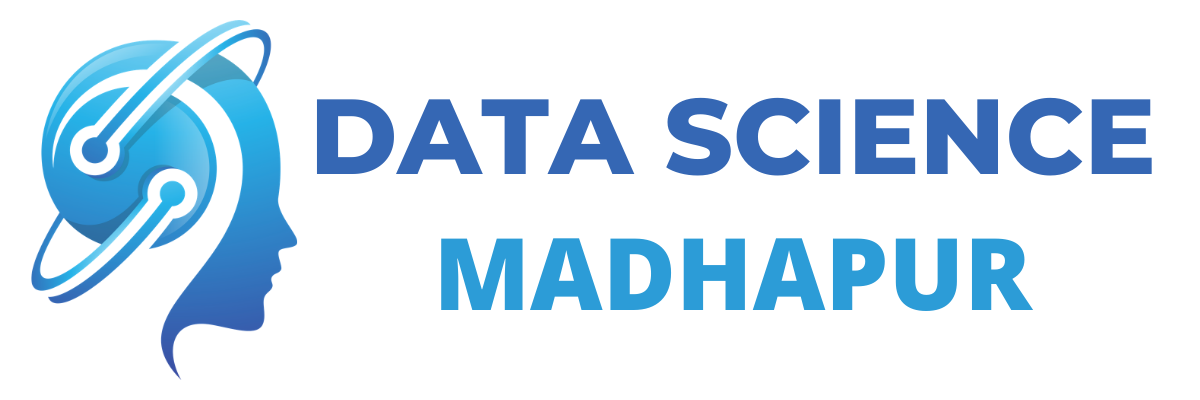Comparing SQL and Java is not a straightforward task as they serve different purposes and are used in different contexts. SQL (Structured Query Language) is a specialized language used for managing and manipulating relational databases, while Java is a general-purpose programming language. It’s more accurate to say that they excel in different domains and have their own strengths and weaknesses.
That being said, here are a few reasons why SQL may be considered advantageous in certain scenarios:
Want to learn more about Dara scientist expert? Enroll in this Best Data Science in Bangalore to do so.
Declarative Language:
SQL is a declarative language, meaning you specify what data you want to retrieve or manipulate without explicitly stating how to do it. This abstraction allows for simpler and more concise code, especially when dealing with complex database operations.
Database-centric Operations: SQL is designed specifically for working with databases. It provides a rich set of functionalities for querying, inserting, updating, and deleting data. It offers powerful features like joins, aggregations, and filtering, making it efficient and effective for managing relational data.
Data Integrity and Security: SQL databases have built-in mechanisms for ensuring data integrity through features like constraints, transactions, and referential integrity. SQL databases also offer robust security features, including user authentication, access control, and encryption, which are crucial for protecting sensitive data.
Optimized for Data Operations: SQL databases are optimized for handling large volumes of data and performing complex data operations efficiently. They are designed to handle concurrent access and scale well with growing datasets, making them suitable for data-intensive applications.
On the other hand, Java offers its own advantages:
General-Purpose Programming: Java is a versatile language that can be used for a wide range of applications beyond databases. It has extensive libraries and frameworks for web development, mobile apps, desktop software, and more. Java’s flexibility makes it suitable for building complex, enterprise-level systems.
360DigiTMG offers the Best Data Science in Chennai. To start a career in Data Science. Enroll now!
Object-Oriented Programming: Java supports object-oriented programming (OOP) paradigms, allowing for modular and reusable code. This approach promotes code organization, abstraction, and encapsulation, making it easier to manage large codebases and collaborate in development teams.
Platform Independence: Java is designed to be platform-independent, thanks to its “write once, run anywhere” principle. Java code can be compiled into bytecode that runs on any platform with a Java Virtual Machine (JVM), enabling cross-platform compatibility and portability.
Learn the core concepts of Data Science Course video on Youtube:
Strong Ecosystem and Community: Java has a vast ecosystem with a wide range of libraries, frameworks, and tools developed and maintained by a large and active community. This support system simplifies development tasks, enhances productivity, and provides solutions for various application requirements.
Here are a few more points to consider when comparing SQL and Java:
Scalability: SQL databases are designed to scale horizontally by distributing data across multiple servers. This allows them to handle large amounts of data and accommodate increasing workloads. On the other hand, Java applications can also be designed to scale, utilizing technologies like load balancing, clustering, and distributed computing.
Data Manipulation: SQL is primarily focused on data retrieval and manipulation. It provides powerful querying capabilities, allowing you to filter, aggregate, and sort data easily. However, when it comes to complex business logic and data processing, Java offers more flexibility. With Java, you can implement custom algorithms and perform complex calculations, which may not be feasible or efficient in SQL alone.
360DigiTMG offers the Best Data Science in Pune. To start a career in Data Science. Enroll now!
Integration and Interoperability: Java is known for its strong integration capabilities, allowing it to communicate with various systems, services, and APIs. It can be used to build middleware applications that connect different components of an enterprise system. SQL, on the other hand, is more specialized in managing databases and may require additional programming languages or frameworks to integrate with other parts of a system.
Development Environment:
Java has a mature and robust development ecosystem with powerful Integrated Development Environments (IDEs) like Eclipse and IntelliJ IDEA. These IDEs provide features like code autocompletion, debugging tools, and project management, which streamline the development process. SQL development, on the other hand, is often done through specialized tools and database management systems (DBMS) that offer SQL query editors, database schema design, and administration capabilities.
Performance: Both SQL and Java can be optimized for performance, but the approaches differ. SQL optimization focuses on optimizing database queries, indexes, and data access patterns to improve query execution speed. Java optimization involves techniques like code profiling, memory management, and algorithmic optimizations to enhance application performance. The performance gains in each case depend on the specific optimizations applied and the characteristics of the workload.
Maintenance and Ease of Use:
SQL databases, once properly designed and normalized, can be relatively easy to maintain. The SQL language has a clear and concise syntax that is easy to understand and work with for database administrators and developers. Java, being a general-purpose programming language, may require more code and effort to implement and maintain complex systems. It often involves more lines of code and a broader understanding of programming concepts.
Portability: SQL databases, such as MySQL, PostgreSQL, or Oracle, have different implementations but generally adhere to the SQL standard, allowing you to migrate your database across different database management systems with minimal changes. Java, as mentioned earlier, is platform-independent and can run on any system with a compatible JVM. This portability allows you to deploy Java applications on a variety of platforms without significant modifications.
Being a Data science is just a step away. Check out the Best Data Science in Hyderabad. Get trained by the alumni from IIT, IIM, and ISB.
Community and Support: Both SQL and Java have large and active communities with extensive resources, forums, and documentation available. However, Java’s community is often considered larger and more diverse, offering a broader range of libraries, frameworks, and support. This can be beneficial when seeking assistance, finding solutions to problems, or keeping up with the latest trends and updates.
Use Cases:
SQL is primarily used for managing relational databases, which are well-suited for structured data with complex relationships. It is commonly used in applications that require data storage, retrieval, and reporting, such as content management systems, e-commerce platforms, and data analysis tools. Java, on the other hand, is a general-purpose language suitable for a wide range of applications, including web and mobile development, enterprise software, scientific computing, and more.
Learning Curve: SQL has a relatively shallow learning curve, especially for basic querying and data manipulation tasks. It focuses on a specific domain (database management), making it easier to grasp the core concepts. Java, being a general-purpose language, has a steeper learning curve as it encompasses a broader set of programming concepts and paradigms. It may require more time and effort to become proficient in Java development.
Data Science Placement Success Story
Data Science Training Institutes in Other Locations
Tirunelveli, Kothrud, Ahmedabad, Hebbal, Chengalpattu, Borivali, Udaipur, Trichur, Tiruchchirappalli, Srinagar, Ludhiana, Shimoga, Shimla, Siliguri, Rourkela, Roorkee, Pondicherry, Rajkot, Ranchi, Rohtak, Pimpri, Moradabad, Mohali, Meerut, Madurai, Kolhapur, Khammam, Jodhpur, Jamshedpur, Jammu, Jalandhar, Jabalpur, Gandhinagar, Ghaziabad, Gorakhpur, Gwalior, Ernakulam, Erode, Durgapur, Dombivli, Dehradun, Cochin, Bhubaneswar, Bhopal, Anantapur, Anand, Amritsar, Agra , Kharadi, Calicut, Yelahanka, Salem, Thane, Andhra Pradesh, Greater Warangal, Kompally, Mumbai, Anna Nagar, ECIL, Guduvanchery, Kalaburagi, Porur, Chromepet, Kochi, Kolkata, Indore, Navi Mumbai, Raipur, Coimbatore, Bhilai, Dilsukhnagar, Thoraipakkam, Uppal, Vijayawada, Vizag, Gurgaon, Bangalore, Surat, Kanpur, Chennai, Aurangabad, Hoodi,Noida, Trichy, Mangalore, Mysore, Delhi NCR, Chandigarh, Guwahati, Guntur, Varanasi, Faridabad, Thiruvananthapuram, Nashik, Patna, Lucknow, Nagpur, Vadodara, Jaipur, Hyderabad, Pune, Kalyan.
Data Analyst Courses In Other Locations
Tirunelveli, Kothrud, Ahmedabad, Chengalpattu, Borivali, Udaipur, Trichur, Tiruchchirappalli, Srinagar, Ludhiana, Shimoga, Shimla, Siliguri, Rourkela, Roorkee, Pondicherry, Rohtak, Ranchi, Rajkot, Pimpri, Moradabad, Mohali, Meerut, Madurai, Kolhapur, Khammam, Jodhpur, Jamshedpur, Jammu, Jalandhar, Jabalpur, Gwalior, Gorakhpur, Ghaziabad, Gandhinagar, Erode, Ernakulam, Durgapur, Dombivli, Dehradun, Bhubaneswar, Cochin, Bhopal, Anantapur, Anand, Amritsar, Agra, Kharadi, Calicut, Yelahanka, Salem, Thane, Andhra Pradesh, Warangal, Kompally, Mumbai, Anna Nagar, Dilsukhnagar, ECIL, Chromepet, Thoraipakkam, Uppal, Bhilai, Guduvanchery, Indore, Kalaburagi, Kochi, Navi Mumbai, Porur, Raipur, Vijayawada, Vizag, Surat, Kanpur, Aurangabad, Trichy, Mangalore, Mysore, Chandigarh, Guwahati, Guntur, Varanasi, Faridabad, Thiruvananthapuram, Nashik, Patna, Lucknow, Nagpur, Vadodara, Jaipur, Hyderabad, Pune, Kalyan, Delhi, Kolkata, Noida, Chennai, Bangalore, Gurgaon, Coimbatore.
Address:
360DigiTMG – Data Analytics, Data Science Course Training Hyderabad
2-56/2/19, 3rd floor,, Vijaya towers, near Meridian school,, Ayyappa Society Rd, Madhapur,, Hyderabad, Telangana 500081
Contact Number: +91-9989994319/1800-212-654321




